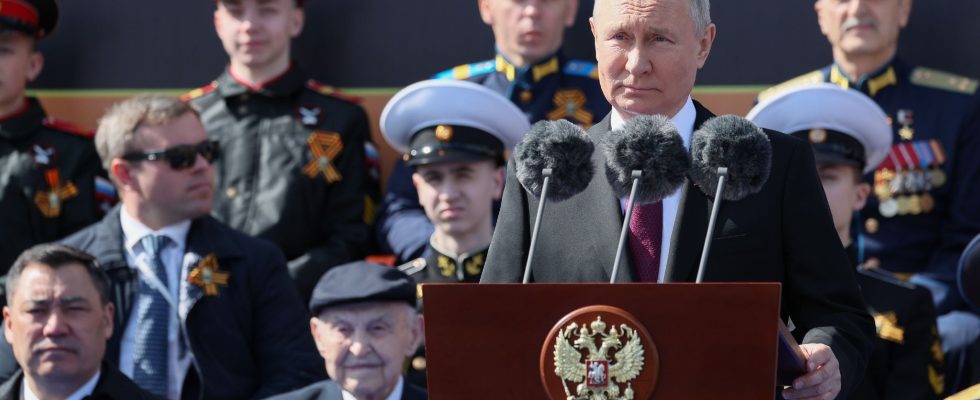Follow the live
Russian attacks on Ukrainian soil continue this Saturday, December 2, while kyiv announces that it has stopped a swarm of around ten aerial drones near the port city of Odessa.
⇒ kyiv announces having shot down 10 new Russian drones near Odessa
⇒ Vladimir Putin increases the strength of his army by 15%
⇒ Moscow tries to silence the anger of soldiers’ wives
kyiv defends itself against a night attack by around ten Russian drones
Ukraine once again defended itself against a Russian drone attack during the night from Friday to Saturday. In a press release on its Telegram messaging channelthe Ukrainian Air Force claimed to have suffered a night attack from 11 Russian “Shahed” type drones, 10 of which were destroyed over the Odessa region.
The aerial drones would have been fired “from Cape Chauda” in occupied Crimea, specifies the press release, which also indicates that an “X-59” aerial missile would have been intercepted “above the Dnipropetrovsk region”, is from the country. Information shared on an official Ukrainian forces channel but which has not been independently confirmed.
Putin orders to increase the number of soldiers in the Russian army by 15%
Russian President Vladimir Putin signed a decree on Friday, December 1, ordering a 15% increase in the number of soldiers in the Russian army. She justified this increase by “the increase in threats” linked to the conflict in Ukraine. The army must have 2.2 million members, including 1.32 million soldiers, according to this decree published by the government. The previous decree, dating from August 2022, set the number of planned members at 2 million, including 1.15 million military personnel.
Concretely, without counting civilian personnel, this represents an increase of 169,372 military personnel, or almost 15% of the currently established combat force. The Russian Defense Ministry, however, declared that this increase in its troops will be done “in stages”, on the basis of voluntary commitments, and that no “mobilization [militaire] is not planned.
Moscow tries to calm angry soldiers’ wives
Russia attempts to silence criticism from families of troops sent to Ukraine. In his briefing on the invasion of Ukraine, published on the social networkthe British Ministry of Defense argued on Saturday December 2 that “Russian authorities are probably trying to destroy the dissent of the wives of deployed Russian soldiers, in particular by trying to pay them and by discrediting them online.”
The statement also said that “in recent weeks, authorities have likely offered higher cash payments to families in exchange for their refraining from protesting.” A reaction which would follow the call from an online group of soldiers’ wives calling on November 27 for “unlimited mobilization”.
The Russian army says it is advancing “in all directions” in Ukraine
In parallel with this announcement, the Russian army said on Friday it was advancing “in all directions” in Ukraine, according to Russian Defense Minister Sergei Shoigu. Russian forces are “expanding their zones of control in all directions,” said the Russian minister, assuring that the Ukrainians’ combat capabilities had been “considerably reduced” after their counter-offensive. In their daily report, the Ukrainian armed forces essentially denied the Russian minister’s statements, claiming to have repelled countless Russian attacks across the entire front line.
Slovak truck drivers join Polish blockade of Ukrainian borders
The situation is becoming “catastrophic” at the border between Ukraine and Poland, Ukraine’s human rights commissioner said on Friday, where some 2,100 freight trucks are blocked by Polish truckers, according to guards. -Ukrainian borders.
Since the beginning of November, Polish road companies have blocked several crossing points, denouncing what they consider to be “unfair competition” from their neighbor. They say in particular that they have seen their income fall and blame it on the abandonment of a permit system which governed the entry of Ukrainian transport companies into the EU. On Friday, Slovak truckers also began to block a border crossing with Ukraine for the same reasons.
A precarious situation for Ukraine, which relies heavily on the road to export its production and obtain supplies, because maritime transport, particularly in the Black Sea, has been hampered by the Russian invasion launched almost two years ago.
